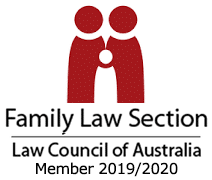By Victoria Byrne, Lawyer, and Nicholas Macolino, Practical Legal Trainee.
Intervention Order conditions can be difficult to comply with if you do not understand them, and frequently we find clients are breaching them inadvertently because they have misunderstood what is allowed. It is imperative that a respondent to an Intervention Order understands the conditions.
Potential consequences of breaching an Family Violence Intervention Orders (“FVIO”)
Intervention Orders themselves are civil matters but contravening an FVIO is a criminal offence and therefore there are serious penalties.
The current penalties as at August 2021 for breaching an order include a maximum of 2 years imprisonment and a fine of up $39,652.80.1 There are even more serious penalties for a breach that causes or intends to cause harm or fear of safety. This can result in a maximum of 5 years imprisonment and/or a fine of up to $99,132.2 A Respondent that frequently breaches the order by non-violent means will also be subject to the higher penalties,3 which means that if you are charged with repeated breaches of the Intervention Order you could be looking at significant jail time.
If a police officer believes that the respondent has committed a breach of interim or final orders, then they can arrest and detain the person without the need for a warrant.4
Common types of breaches
There are many ways that a person could breach an FVIO depending on the specific conditions that were set, however here are some of the most common:
- Approaching the protected person in any circumstance;
- Accidently walking past or into an area where the protected person is and then remaining in that space, such as at the local shopping centre;
- Text messaging or emailing a protected person about the FVIO or any other matter where there is no exemption (noting that there are often specific exemptions for discussing children’s arrangements);
- Calling the protected person, particularly when it is frequent. This includes when you do not speak to them and leave a missed call;
- Using surveillance against the protected person, which can include frequently checking their social media; and
- Giving gifts or cards to an ex-partner or children who are named on the FVIO when there is no exemption for you to do so.
It is especially important to note that you cannot have any other person do any of the things you cannot do under the order on your behalf. This means you cannot have family or friends contact the protected persons for you.
One of the most confusing breaches that a respondent may face is when the protected person invites the respondent to commit an act that they cannot under the FVIO. Simple examples of this include:
- If the protected person invites you to come to their house, but there is a condition that you cannot attend their home;
- Spending time with the protected person/s at a café or restaurant by their invitation, but the conditions include that you cannot be within 5m of them.
In these circumstances, the protected person has not committed any offence for being an accomplice to the respondent breaching the FVIO,5 but as the respondent you can be found to have breached the order.
A protected person cannot ‘consent’ to allowing the respondent to breach the FVIO, and it becomes even more complicated in situations where a member of the Police Force is the applicant for the FVIO.
If a respondent is contacted by the protected person, they should not respond and consider seeking legal advice as soon as practicable.
Firearms
If the respondent is a holder of a firearms licence, they will automatically be deemed a ‘prohibited person’ upon final orders.6 This means that the licence is automatically suspended, and the police may seize all related firearms licences and materials. This may have already occurred under specific interim orders given by the Magistrate.
How do I avoid breaching?
The answer is simple. If in doubt, do not do it. As the respondent to an FVIO, you should always interpret the conditions as broadly as you possibly can and make sure you are doing nothing that could even remotely be considered a breach.
How do I go about obtaining specific advice on avoiding a breach?
Our lawyers routinely provide advice on Intervention Order matters. You can contact us on 9741 1722 to make an appointment.
References
1 Family Violence Protection Act 2008 (Vic) s 123.
2 Ibid s 123A.
3 Ibid s 125A.
4 Ibid s 124.
5 Ibid s 125.
6 Firearms Act 1996 (Vic) s 3.
You’re welcome to visit our Contact page for more details and make an appointment.





